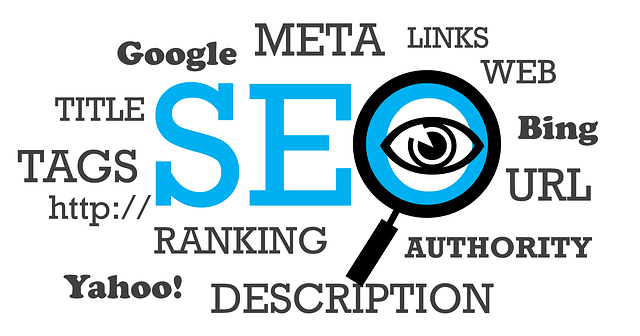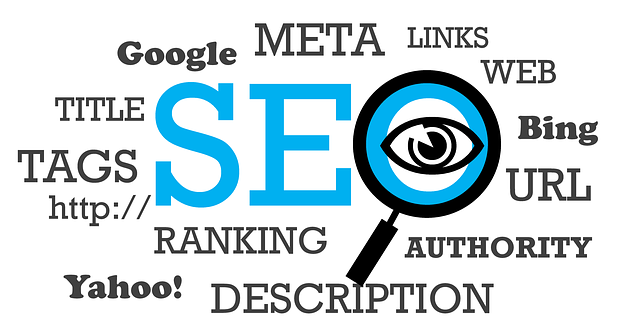Search Engine Optimization (SEO) is a comprehensive strategy that boosts online visibility, attracts organic traffic, and drives business growth. By understanding search engine workings, businesses can optimize content for user intent, enhancing brand credibility and authority. Effective SEO includes on-page optimization with targeted keywords, valuable content creation, and technical improvements for better crawling and indexing. Off-page strategies focus on building quality backlinks and establishing niche authority. A successful SEO campaign integrates social media, content marketing, and continuous performance analysis to maximize the benefits of Search Engine Optimization, ensuring a robust online presence in a competitive digital landscape.
In today’s digital landscape, driving organic traffic to your website is paramount for online success. This article delves into the multifaceted world of Search Engine Optimization (SEO), exploring its myriad benefits and strategic approaches. From understanding foundational concepts like keyword optimization to implementing advanced techniques like technical SEO and user experience (UX) enhancements, we’ll guide you through proven tactics. Uncover how social media, content marketing, and analytics play pivotal roles in amplifying your online presence and attracting the right audience naturally.
Understanding Search Engine Optimization (SEO): The Foundation of Organic Traffic Growth

Search Engine Optimization (SEO) is a crucial strategy for any business aiming to boost its online presence and attract organic traffic. It involves understanding how search engines, primarily Google, work and what factors influence their ranking algorithms. SEO focuses on optimizing web content to make it more relevant and valuable to users, ensuring that it aligns with the intent behind their search queries. By doing so, search engines can deliver a better user experience, which is essential for keeping visitors engaged and encouraging them to explore further.
The benefits of SEO are far-reaching. It helps improve website visibility by increasing its chances of appearing in the top search results pages (SERPs). This increased visibility drives more organic traffic, as potential customers are more likely to click on a highly ranked site. Additionally, SEO fosters brand credibility and establishes authority within a specific industry or niche. Effective SEO strategies can also lead to long-term gains, as they create a solid foundation for ongoing growth, ensuring that a website remains competitive in the ever-evolving digital landscape.
Unlocking the Power of Keywords: How They Drive Targeted Visitors

In the world of online visibility, Keywords are the unsung heroes that drive organic traffic to your website. They act as a bridge between searchers and your content, translating intent into action. When optimizing your site for Search Engine Optimization (SEO), strategically placing relevant keywords throughout your text ensures your content appears in the results when users search for related terms. This increases the likelihood of attracting visitors who are genuinely interested in what you offer, leading to higher engagement rates and improved conversion outcomes.
Understanding user search behavior is key. Tools like Google Keyword Planner can reveal popular search queries within your niche. Incorporating these keywords naturally into titles, headings, meta descriptions, and body content demonstrates to search engines that your site provides value for specific questions or needs. The benefits of SEO extend beyond traffic; it enhances brand authority, builds trust with potential customers, and fosters long-term relationships based on relevant, high-quality information.
On-Page SEO Strategies: Optimizing Your Website Content for Search Engines

On-Page SEO is a powerful tool to enhance your website’s visibility and attract organic traffic. It involves optimizing individual web pages to rank higher in search engine results, thereby increasing the chances of users clicking through from the search results page (SERP) to your site. One of the key strategies here is keyword optimization, where you strategically place targeted keywords throughout your content, including titles, headings, meta descriptions, and body text. These keywords should accurately reflect what potential visitors are searching for. By doing so, search engines like Google can better understand your page’s relevance to specific user queries, leading to improved rankings and increased visibility.
Additionally, creating high-quality, engaging content is paramount. Search engines prioritize content that provides value to users, as it leads to longer browsing durations and lower bounce rates. Regularly updating your website with fresh, informative, or entertaining content not only keeps visitors engaged but also signals to search engines that your site is active and authoritative in its niche. Other on-page tactics include optimizing images with alt tags, ensuring fast page loading speeds, and structuring content using semantic HTML markup, all of which contribute to a better user experience and, consequently, better SEO outcomes and the reaping of the benefits of Search Engine Optimization.
Off-Page SEO Techniques: Building Quality Backlinks and Authority

Off-page SEO focuses on actions taken outside your website to improve its search rankings. One of the most powerful tools in an off-page SEO strategy is building quality backlinks. Backlinks act as votes of confidence from other websites, signaling to search engines that your content is valuable and worthy of sharing. Acquiring these links involves creating engaging, shareable content that naturally draws links from relevant, authoritative sites. Another key aspect is establishing your website’s authority within its niche. This means building a strong online presence by consistently producing high-quality content, earning mentions in reputable publications, and fostering relationships with industry leaders.
By implementing effective off-page SEO techniques, you can reap significant benefits of search engine optimization, including increased visibility, improved search rankings, and ultimately, more organic traffic driven to your website.
Technical SEO Considerations: Ensuring Your Site is Crawled and Indexed Effectively

Search engines, like Google, are the gateway to online visibility and discovery for any website. To harness the full potential of these platforms, it’s crucial to consider Technical SEO, which focuses on making your site easily crawlable and understandable by search engine bots. This involves optimizing essential technical aspects that directly impact how search engines index and rank your pages.
By ensuring your site has a clear structure with proper XML sitemaps, efficient robots.txt rules, and fast loading speeds, you enhance the chances of search engines effectively crawling every page. This process is vital as it allows search engine algorithms to accurately interpret and index your content, leading to better search rankings and increased organic traffic—key benefits of implementing robust Search Engine Optimization (SEO) strategies.
The Role of User Experience (UX) in Boosting Organic Traffic

A positive user experience is a key component in enhancing organic traffic through SEO efforts. When a website offers users a seamless, intuitive, and enjoyable experience, they are more likely to navigate deeper into the site, engage with its content, and ultimately, convert into customers or followers. This behavior signals to search engines that the site is valuable and relevant, boosting its ranking in search results. A well-designed UX encourages visitors to explore, interact, and share, which can significantly increase organic reach.
By optimizing website speed, ensuring mobile responsiveness, implementing easy navigation, and providing high-quality content, businesses can attract and retain user interest. These strategies not only improve the overall visitor experience but also send powerful signals to search algorithms, indicating that the site is of high quality and worth featuring in top search rankings, thereby reaping the benefits of search engine optimization.
Leveraging Social Media and Content Marketing for SEO Success

In today’s digital era, leveraging social media and content marketing is pivotal for achieving SEO success. These powerful tools enhance your online visibility by driving organic traffic to your website. By consistently sharing valuable, engaging content across various platforms, you attract a wider audience, build brand awareness, and establish authority in your niche. Social media platforms act as a direct line of communication with potential customers, enabling you to connect, interact, and understand their needs and preferences better.
Content marketing, on the other hand, provides the substance that resonates with your target audience. High-quality blog posts, infographics, videos, and podcasts not only satisfy search engines’ requirement for relevant, informative content but also cater to users’ intent. When your content aligns with what people are searching for, you increase the likelihood of ranking higher in search results, thereby reaping the benefits of Search Engine Optimization (SEO) and attracting more organic traffic to your site.
Measuring and Analyzing SEO Performance: Key Metrics to Track

Measuring and analyzing SEO performance is an essential aspect of understanding the benefits of Search Engine Optimization (SEO). It involves tracking key metrics that provide insights into how well your website is performing in search engine results pages (SERPs). These metrics include click-through rates (CTRs), which measure the percentage of users who click on your website after seeing it in search results. A high CTR indicates that your SEO efforts are effective in capturing user interest.
Another critical metric to track is average position, which represents where your website appears on a page of SERPs for specific keywords. Higher average positions mean more visibility and potential for increased organic traffic. Additionally, tracking impressions provides valuable data by showing how many times your website has appeared in search results, regardless of whether users clicked on it. This helps identify popular and relevant content that can be further optimized to enhance the overall SEO performance.
Staying Ahead of Algorithm Updates: Adapting Your SEO Strategy

Search engines regularly update their algorithms, and keeping up with these changes is crucial for maintaining high search rankings. These updates are designed to improve user experience by delivering more relevant results. SEO experts need to stay ahead of the curve to ensure their strategies remain effective. Adapting to algorithm changes involves a combination of staying informed about industry trends and continuously optimizing content.
Regularly reviewing and updating your SEO approach can maximize the benefits of Search Engine Optimization, such as increased visibility, improved user engagement, and higher conversion rates. By embracing these updates, businesses can stay competitive in a dynamic digital landscape, ensuring their online presence remains robust and relevant to their target audience.
